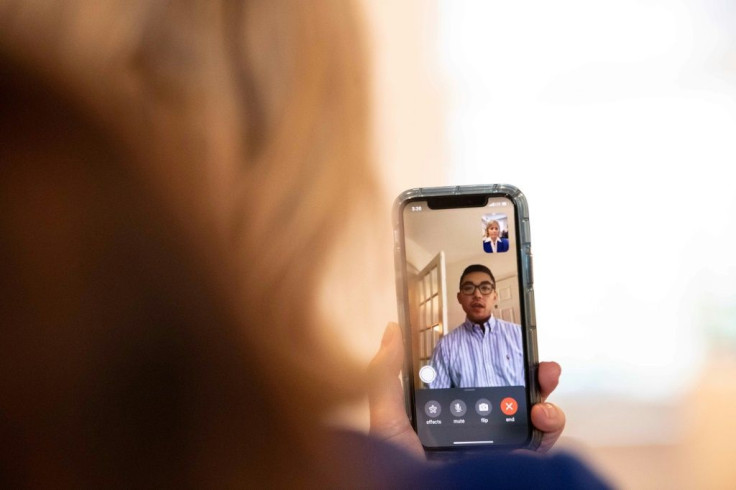US Economy: How Businesses Must Embrace The Digital Age To Survive The Coronavirus

KEY POINTS
- The pandemic has profoundly altered the way we do business, and some of these behavioral changes are permanent.
- Zoom, Microsoft, and Google have made video conferencing services free for businesses shifting to remote work and online sales.
The coronavirus pandemic has triggered massive changes in consumer behavior.
Demand for online grocery shopping has more than doubled. At-home fitness gear is flying off the virtual shelves. And e-commerce platforms of all types are recording unprecedented traffic. All told, online sales jumped about 50 percent in April following the beginning of shelter-in-place orders, according to Adobe's Digital Economy Index.
In an attempt to return to normalcy, several states across the nation are beginning to lift shelter-in-place orders and remove social distancing requirements. But things won't ever be the same. The pandemic has profoundly altered the way we do business, and some of these behavioral changes are permanent. If businesses don't adjust and prepare for this new digital reality, they won't survive the pandemic or its aftermath.
Unsurprisingly, e-commerce has boomed since the outbreak began. Compared to their 2019 figures, retailers that have both brick-and-mortar and online presences reported a 52 percent increase in online sales between late-January and February, according to analytics firm Quantum Metric.
Much of this business comes from new customers. A recent survey found that more than 40 percent of people shopping online for groceries were doing so for the first time.
Hiring patterns clearly reflect this new wave of online demand. Businesses nationwide have laid off millions of Americans. Yet in March, Amazon and Walmart announced that they planned to hire a combined 250,000 additional workers to fulfill and deliver e-commerce orders. Macy's recently stated that it would furlough most of its employees, but there would be "fewer furloughs in our digital business . . . so we can continue to serve our customers online."
Of course, people are primarily transacting online because they can't leave their homes, but these new customers won't all disappear once the virus subsides.
Consider the workout industry. The average gym membership costs nearly $700 per year in the United States. It's far cheaper -- and more convenient for many consumers -- to subscribe to a virtual fitness program and buy a set of weights.
Or consider meal delivery kits. Folks may initially sign up for Blue Apron or Hello Fresh to avoid visiting the supermarket, but some people will undoubtedly discover they enjoy cooking their own pre-packaged dinners and become lifelong subscribers.
Plus, the fear of coronavirus will unfortunately linger long after COVID-19 cases dwindle. Half of Americans say the pandemic has negatively impacted their mental health and well-being.
Florida may reopen its beaches, Texas might allow residents back into restaurants, and Georgia may open up its gyms. But even with social distancing measures in place, there will still be untold numbers of people who are afraid to even leave their homes -- let alone jog near someone on a treadmill or grab a drink at the local bar. Millions of high-risk people who suffer from chronic conditions will be particularly wary of venturing into busy stores and public places, possibly for years to come.
Simply put, if businesses want to survive and thrive in the new reality, they'll need to significantly expand their online presence.
Adjusting to this new reality will be easier said than done for many firms. As a result, my company, Fiverr, has worked quickly to adapt to the new ways that Americans are living and working. When the pandemic began, we opened several new categories on our website -- including online coding classes and music lessons -- to meet the growing demand for virtual assistance. Now, we're actively working with businesses to help them digitally transform their offerings -- whether that's creating a website, helping with e-commerce, or optimizing social media channels.
We're not alone. Zoom, Microsoft, and Google have made video conferencing services free for businesses shifting to remote work and online sales. And Shopify, an e-commerce company, is offering an extended 90-day free trial to new customers who are looking to take their retail stores online.
The coronavirus pandemic has ushered in a new digital-first age, one that'll last long after the virus fades. Businesses of all sizes will have no choice but to adapt.
Brent Messenger is vice president of public policy & community engagement at Fiverr
© Copyright IBTimes 2025. All rights reserved.




















